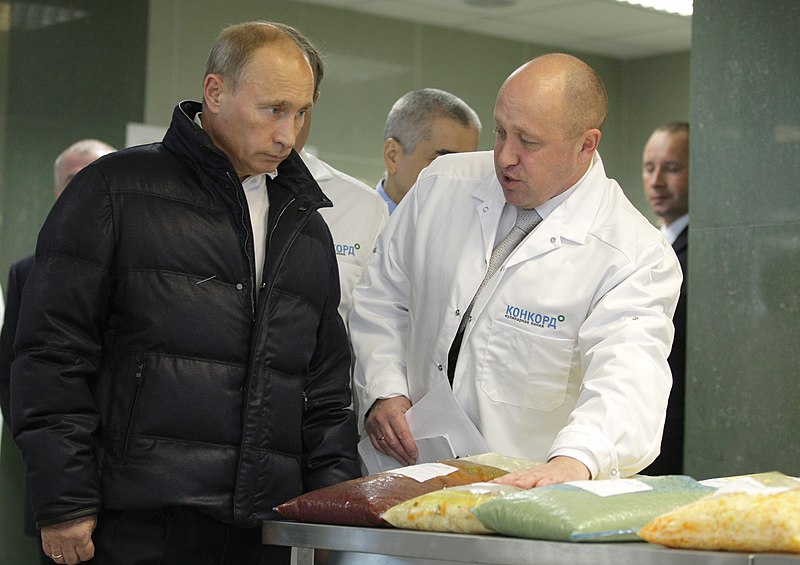
Prime Minister Vladimir Putin tours the new factory Concord, which supplies pre-prepared meals to schools with Yevgeny Prigozhin. September 20, 2010.
In The Spectator, Mark Galeotti discusses what can be learned from the failed mutiny by Yevgeny Prigozhin against Vladimir Putin’s Russia. He writes:
The septuagenarian Putin has surrounded himself with a clique of individuals with very similar backgrounds. Almost all are also in their seventies, veterans of the KGB, and also arrivistes, the first in their families to break into the nomenklatura, the Communist Party chosen. They had finally made it, just in time for that system to collapse around them. A sense of loss has metastasized into one of betrayal, of anger towards a West that supposedly brought down the USSR, then neglected and exploited Russia in the 1990s and has tried to stymie its resurgence since. There is an emotional dimension to Russian policy too often neglected in debates over geostrategic interests.
The next political generation, though, the fifty- and early-sixty-somethings, is rather different. They are not by any means liberal democrats. They are pragmatic opportunists, kleptocrats. They certainly are not afflicted by the Georgian curse “may you live on your wages alone.” They are or were Putinists not because of ideological conviction or personal loyalty but because supporting him was the best path to wealth and status.
The sixty-two-year-old Prigozhin is a particularly thuggish case in point. He is a creation of Putin’s, his trajectory from restaurateur to troll-farm manager and mercenary condottiere has been on his patron’s coat-tails. Nonetheless, although his mutiny was likely coercive negotiation, an attempt to prevent the dissolution of Wagner and persuade Putin to stop backing his rival, defense minister Sergei Shoigu, it was still an act of armed rebellion. He himself held back from making any such direct statements, but after Putin condemned Prigozhin’s “march of justice” as treason, a message posted on the Wagner Telegram channel starkly asserted: “Putin made the wrong choice. All the worse for him. Soon we will have a new president.”
This political generation is not only growing impatient as Russia becomes a gerontocracy, as Putin cronies reaching the retirement age of seventy are allowed to remain in post. It is also feeling that its practical interests are under pressure. While the oligarchs and minigarchs have the resources to live pampered lives largely as before (organized crime has moved into lucrative new businesses, smuggling everything from Italian handbags to spare parts for Mercedes cars), most bureaucrats and businesspeople are feeling the pinch. Besides, this cosmopolitan class had come to enjoy the opportunities to steal at home but bank abroad, to send their children to foreign universities, to acquire boltholes in Riga, Prague, London. There are still vacation options, from Dubai to Phuket, but it rankles people who consider themselves Europeans to be excluded by the West.
There is no sense that Putin is under imminent threat. However, his system is increasingly sclerotic and dysfunctional, and there is nothing to suggest that he has the plan or the energy for any serious reform. Prigozhin’s mutiny has left it even more brittle. Putin looks weak for having first denounced his mercenary chief as a traitor and then waived all charges against him in the name of a deal. More to the point, it has raised questions about the final backstop of his rule, his control of the security apparatus. The sight of soldiers letting Wagner’s columns roll by can only have heartened those who would see him fall.
Read more here.
If you’re willing to fight for Main Street America, click here to sign up for the Richardcyoung.com free weekly email.





